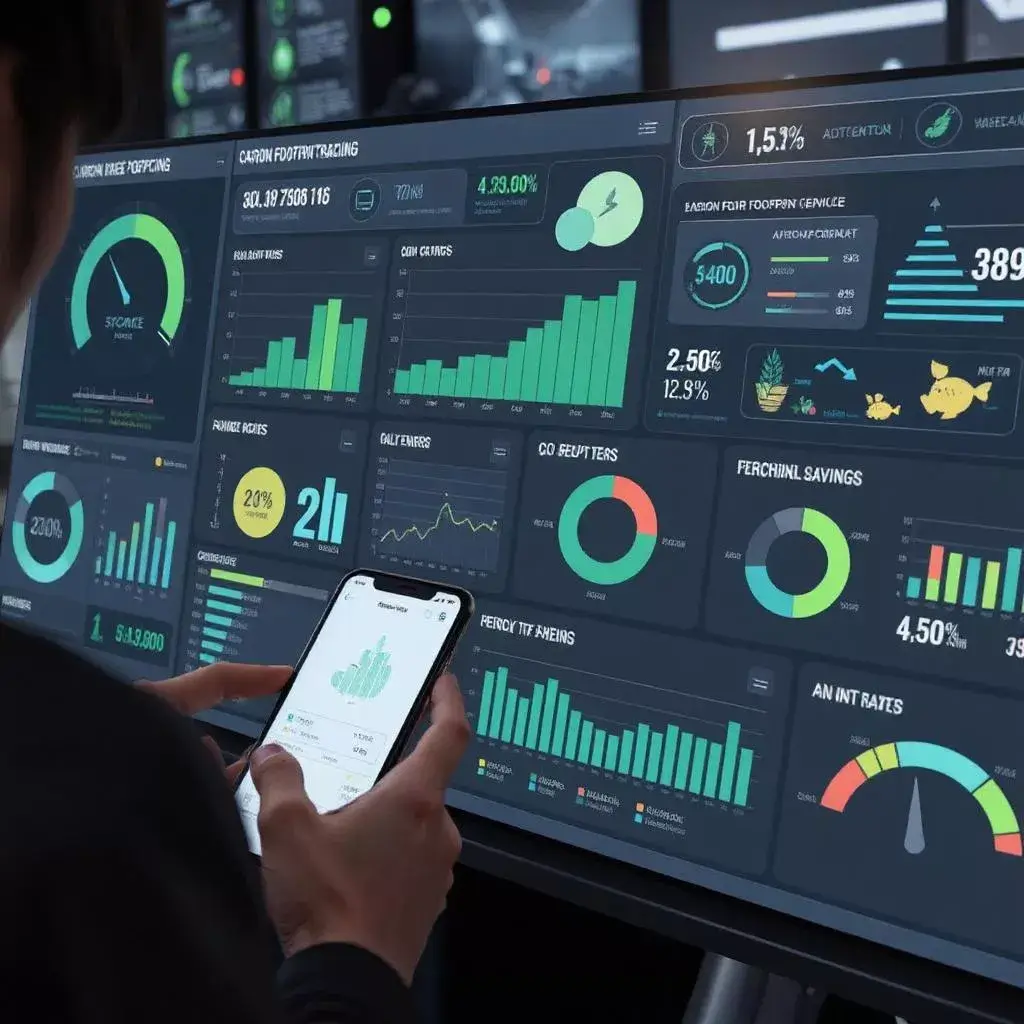1. Introduction
As global awareness of climate change increases, individuals are seeking ways to reduce their carbon footprints. One of the most effective methods is using digital tools that track and measure carbon savings. These tools provide real-time insights, helping users make informed decisions about their energy consumption, transportation, and shopping habits.
This article explores various digital tools available for tracking carbon savings and how they contribute to a greener lifestyle.
2. The Importance of Tracking Carbon Savings
Awareness of Impact: Digital tools help users understand how their daily activities contribute to carbon emissions.
Encourages Sustainable Habits: Real-time tracking encourages individuals to adopt eco-friendly behaviors.
Goal Setting and Achievement: Users can set carbon reduction goals and monitor progress.
Data-Driven Decisions: Provides insights into energy-efficient choices.
Contributes to Global Sustainability: Small changes at an individual level collectively lead to significant environmental benefits.
3. Carbon Footprint Calculators
Online Calculators: Websites like Carbon Footprint and CoolClimate provide estimates of personal carbon emissions.
Customizable Data Entry: Users can input specific lifestyle details for accuracy.
Breakdown by Category: Travel, energy use, diet, and shopping habits are analyzed.
Actionable Suggestions: Recommends ways to reduce emissions based on user data.
Comparative Analysis: Allows users to compare their carbon footprint with national and global averages.
4. Mobile Apps for Carbon Tracking
Capture Carbon App: Tracks emissions from daily activities and suggests reductions.
Oroeco: Connects spending habits to carbon impact and offers greener alternatives.
Klima: Personalized carbon tracking with options for offset contributions.
Greenify: Helps businesses and individuals make eco-friendly choices.
JouleBug: Turns sustainability into a game by rewarding users for green actions.
5. Smart Energy Monitors for Homes
Sense Energy Monitor: Tracks real-time electricity use and identifies high-energy appliances.
Emporia Vue: Provides detailed insights into energy consumption and waste reduction.
Neurio Home Energy Monitor: Helps users optimize home energy efficiency.
Google Nest Power Project: AI-driven suggestions for energy conservation.
Ecoisme: Syncs with smart home devices to reduce unnecessary power consumption.
6. Wearable Tech for Eco-Conscious Living
Sustainability Wearables: Devices like smartwatches track steps, calories, and environmental impact.
Carbon Offset Integration: Some wearables allow users to contribute to tree-planting projects.
Daily Activity Analysis: Provides a carbon footprint estimate based on user activity.
Sync with Eco Apps: Wearables connect with sustainability apps for tracking.
Personalized Insights: AI-driven feedback on reducing emissions from daily routines.
7. Online Platforms for Sustainable Travel Planning
Google Maps Eco-Mode: Suggests routes that use less fuel.
Skyscanner Greener Choices: Highlights flights with lower emissions.
EcoPassenger: Compares emissions from different travel modes.
TripGo: Suggests public transport and biking options over car travel.
Glooby: Analyzes hotel sustainability scores for eco-friendly stays.
8. Digital Tools for Eco-Friendly Shopping
Good On You: Rates brands based on environmental impact.
DoneGood: Highlights sustainable and ethical brands.
Ethical Consumer: Provides transparency on business sustainability.
Think Dirty: Helps users avoid harmful products and packaging.
Buycott: Suggests ethical alternatives to common purchases.
9. AI-Powered Carbon Footprint Management
Microsoft AI for Earth: Uses AI to monitor and reduce carbon footprints.
Google Carbon Tracker: Provides real-time sustainability reports.
IBM Green Horizons: Predicts emissions trends using AI.
Climate AI: Helps businesses track and offset emissions.
EcoGator: Offers energy efficiency recommendations.
10. IoT and Smart Devices for Carbon Reduction
Smart Thermostats: Adjust heating and cooling based on usage.
Smart Plugs: Reduce phantom energy drain.
LED Smart Bulbs: Lower electricity consumption.
Smart Irrigation Systems: Conserve water usage.
Smart Appliances: Optimize energy use and reduce waste.
11. Carbon Offset Programs and Digital Contributions
Terrapass: Allows individuals to offset their carbon footprint.
Gold Standard: Certified projects for carbon reduction.
MyClimate: Offers personalized offset plans.
Pachama: Uses satellite imagery to track reforestation efforts.
Ecosia: A search engine that plants trees based on user searches.
12. Comparison Table of Digital Carbon Tracking Tools
| Tool | Main Features | Best For |
| Oroeco | Spending-based carbon tracking | General consumers |
| Sense Energy Monitor | Real-time home energy tracking | Homeowners |
| Skyscanner Greener Choices | Low-emission flight options | Frequent travelers |
| Good On You | Sustainable shopping insights | Ethical shoppers |
| Terrapass | Carbon offset purchasing | Individuals/businesses |
13. Challenges and Considerations
Accuracy of Estimates: Carbon calculators provide estimates, not exact numbers.
User Engagement: Consistency is required for meaningful results.
Cost of Smart Devices: Some energy monitors and IoT solutions can be expensive.
Data Privacy: Some apps require personal information for tracking.
Limited Regional Availability: Not all tools are available in every country.
14. Conclusion
Using digital tools to track and reduce carbon savings is an effective way to contribute to sustainability. From mobile apps to smart home devices, individuals can make informed decisions about their energy use and lifestyle choices.
By integrating these tools into daily routines, users can play an active role in environmental conservation, helping create a greener future for all.
Disclaimers
The effectiveness of carbon tracking tools varies based on usage and regional factors.
Some apps and platforms may require paid subscriptions for full functionality.
Energy-saving estimates are approximate and depend on individual behaviors.
Privacy concerns exist with certain tracking tools that collect user data.
Product recommendations are based on general reviews and may change over time.
Author: Dipika Kumari
Publication Date: 27-03-2025
Email: [email protected]
